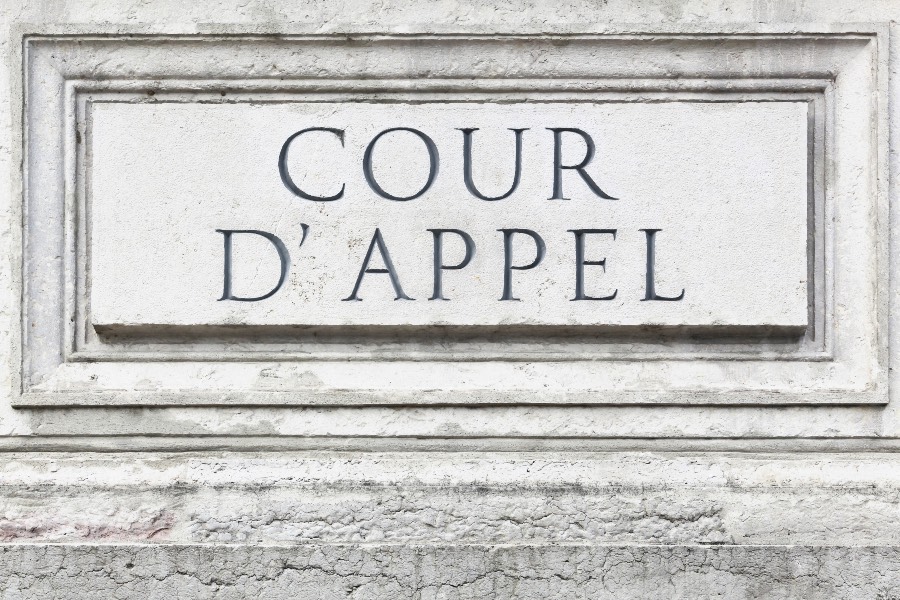Do you need a French translation of a document written in a foreign language? Do you need an official or administrative document translated into English, Spanish or another language? Some procedures require a certified translation, and for this you may need to use a sworn translator. Where can I get a certified translation? Where can I find a certified translator? This article points you in several directions.
What is a sworn translator?
The sworn translator has a special place among specialist translators. Registered with the Court of Appeal to which he has been sworn, he is the only expert translator who can certify the conformity of a document’s translation. Thus recognised by the courts, it confers an indisputable legal value on the document it translates.
Note: The sworn translator can also be called a “certified translator”, “approved translator”, “expert legal translator” because of his or her expertise. However, this should not be confused with a specialised legal translator. Read on to understand: legal translation and sworn translation, what is the difference?
How do I know if a translation is sworn?
A document translated by a sworn translator necessarily contains several elements that make it possible to identify that it has been certified as being in conformity with the original and that it has an indisputable legal value.
Thus, it is mandatory to include :
- The name of the approved translator
- The signature of the certified translator
- The initials of the certified translator
- The identification number of the approved translator
- The stamp or “seal” of the certified translator
- The words “vu, ne varietur” and the mention of the source and target languages
Note: An apostille can be requested from a court clerk to strengthen the authentication of the translated document. The apostille is a supplement to the legalisation often required abroad.
Option one: find out for yourself
Consult the official list
Accredited translators are on an official public list for five years, which can be renewed. This list can be consulted on the website of the Cour de cassation.
Advantage: at first sight, the process seems quick since the list is available online.
Disadvantages: the official list mentions all experts approved by the courts of appeal, not just translators. You will therefore find other specialities such as legal experts, architects or doctors, since these professions are also required to take an oath before a court of appeal. In addition, you need to know which court of appeal you belong to (and consult the directory of the Ministry of Justice for this). It is therefore not easy to find your way around.
Contacting an Embassy or Consulate
You can also contact the French consulate or an embassy.
Advantage: you are sure to have an official list and to contact approved translators.
Disadvantage: Again, the list is long… you may need to contact several translators before you get the one that meets your criteria, especially in terms of deadlines or languages (some languages are harder to find than others or you may need a multilingual translation!)
Do you live in a foreign country? The process can be even more difficult! In contrast to France, many states do not make the list of sworn experts available.
Search on social networks
Find a sworn translator on a professional social network such as Linkedin? Of course, it is possible!
Advantages: a large network opens up to you, with the added bonus of CV transparency, experience, client feedback, possible publications to “judge” the quality of the service, etc.
Disadvantages: Again, you may need to be patient to find the right profile for you. Furthermore, you may lack the expertise and judgement to choose the right profile.
Remember: It is important to choose your translator carefully. The sworn translator must ensure that the legal terms are transcribed from the source language into the target language. They often have significant experience in a particular sector.
Second option: use an agency
If you are in a hurry to find the most suitable translator for your request, you should go through a translation agency. Why is this the easiest way to find a sworn translator?
- The agency relies on a network of translators and puts you in touch with a translator specialising in a particular field. In addition to certifying a document, the translator must be able to transcribe technical terms from one language to another.
- The agency establishes a network of translators of various languages and thus enables you to be put in contact with a sworn translator in a less common language or to respond effectively to a multilingual translation need.
- The agency uses native translators, i.e. translating into their native language, offering you the best possible quality of translation (precision in the choice of terms, linguistic nuances and developments, etc.).
- The agency establishes a privileged relationship with its translators, allowing you to call on professional translators in complete confidence.
- The agency knows the availability of its translators in order to meet the required deadlines.
- The agency assists you in preparing your files throughout the certification process.
How much does a sworn translation cost? The price of a sworn translation depends on various factors.
The sworn translator can work for public authorities as well as for private contractors. Whether it is a court report, a contract, a passport or a health document, the translation is always a high-stakes document. It allows a legally admissible document to be obtained, giving it the same legal value as the original. The easiest way to find a sworn translator is to use a translation agency, as they know the qualities of their translators and the requirements of their clients.

